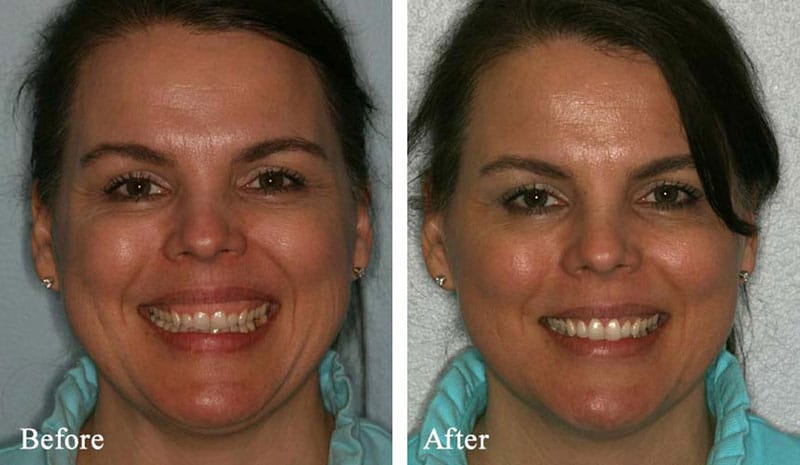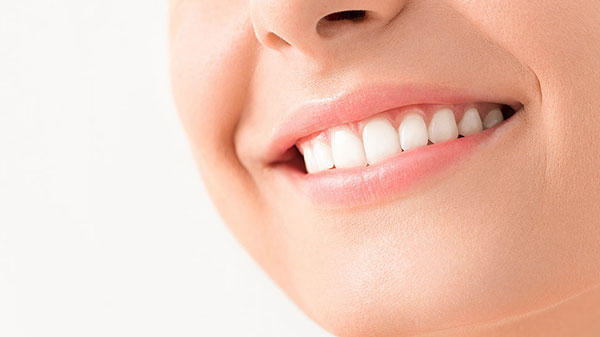Gum Health

Integrated Dentistry provides healthy gum treatment to patients in Bentonville, AR.
Contact our office to learn more or schedule an appointment!
Healthy Gums and Bone Assure a Beautiful Smile for Life
Hardy, healthy gums are the first line of defense in protecting your teeth, underlying jaw bone, and also the overall health of your body. Yet for many reasons, gums can thin and recede over time. At Integrated Dentistry, we employ state-of-the-art procedures to regain lost tissue, correct recession, and strengthen thinning gums. And if grafting is necessary, the grafting procedures we offer can be done without using tissue from the palate, making healing and recovery even faster.
Gum Recontouring and Esthetics
Sometimes a person’s smile has too much gum tissue. A “gummy” smile can detract from the overall look of the smile. Our dental team can perform highly skilled techniques using a dental laser to reshape gums and bring the proportions of gums and teeth back into harmony.
Crown Lengthening

Crown lengthening is commonly used to expose more tooth structure. The crown lengthening process removes some gum tissue and/or bone to expose more of a tooth’s structure.
Signs of Gum Disease
Periodontal disease begins when the toxins contained in plaque attack the soft or gingival tissue that surround your teeth, embedding in the gum. There they breed, causing infection and the formation of pockets. These pockets deepen over time, so that if treatment isn’t sought, infection can deepen and your jawbone can recede, which causes tooth instability and bone loss.
But gingivitis, the first stage of gum disease, can be reversed. Thorough treatment can slow or halt more advanced stages. It’s important to know the signs of gingivitis, and seek treatment as soon as possible.
Signs include:
- Red, swollen gums
- Bleeding gums (during or after brushing)
- Receding gums
- Chronic bad breath
- Loose teeth
- Sensitive teeth
- Pockets between teeth and gums
Caring for Your Gums
The best way to prevent gingivitis and take care of your gums is to keep them healthy with simple routine care.
Routine gum care includes:
- Floss daily
- Brush at least twice daily
- See your dentist for regular cleanings every 6 months or as recommended by your dentist
- Use mouthwash to reduce plaque and prevent gingivitis
- Quit smoking
Learn more about Periodontal Disease
Periodontal disease can be prevented with proper dental care, and treated at each stage.
Gingivitis/mild periodontal disease, indicated when gum pockets exceed 4 mm in depth, can require deep cleaning, scaling and root planing to remove debris from the pockets and allow healing.
Moderate periodontal disease, when gum pockets reach 4-6 mm, usually require a more thorough scaling and root planing, one that is usually performed under a local anesthetic.
Advanced periodontal disease, indicated by gum pockets over 6-7 mm, usually are also accompanied by bone loss and gum recession. Along with scaling and root planing,a surgical treatment to reduce the pocket depth may be recommended.
Tooth loss due to periodontal disease can be successfully treated with implants, bone grafts, or dental bridges, as necessary.
Questions? If you have any concerns or questions about properly caring for your gums, or wish to schedule a routine cleaning, we're happy to help. Just reach out to us to schedule an appointment, and we are ready to discuss the best tools and tips for a healthy mouth.
Caring for Your Gums
Frequently Asked Questions
Can I stop my gums from receding?
Yes, once your gums have started to recede, you can take steps to help stop them from continuing to do so. It starts with the healthy oral habits such as flossing daily, brushing twice a day, scheduling regular visits for checkups and cleanings with your dental team every six months or as directed by your dentist. Using mouthwash to reduce plaque and prevent gingivitis is also a great idea; quitting smoking is not just good for your gums and dental health but for your overall health and longevity.
Can gums grow back?
Unfortunately, no. Gums cannot grow back once they have receded. There are treatments available that can help restore your gum line and restore your oral health, however, such as scaling and planing, or surgical treatments to reduce pocket depth.
Does gum contouring hurt?
We take great care to prevent pain and discomfort for our patients. Before gum contouring, you may be given local anesthesia to numb the area so you will not feel any pain. With our laser contouring techniques, anesthesia can most likely be avoided as unnecessary. After the treatment, for most patients, discomfort is minimal, and any soreness or sensitivity should fade after about ten days. If you do experience any pain, it’s usually alleviated with over-the-counter pain relievers. One thing to note: don’t use aspirin-based medication, as it can cause blood thinning and bleeding.
What can I eat after contouring?
For the first few days after contouring, you should eat mainly soft, cool foods, like yogurt, eggs, pasta, soft vegetables, smoothies, and ice cream.
How long does it take to heal after contouring?
The length of time required to heal depends on just how complex the procedure may be. On average, it can take a couple of weeks to fully heal. All the same, laser contouring tends to heal faster than traditional gum surgery.
Call 479-333-1300 to schedule an appointment with a dentist in Bentonville, AR today!
